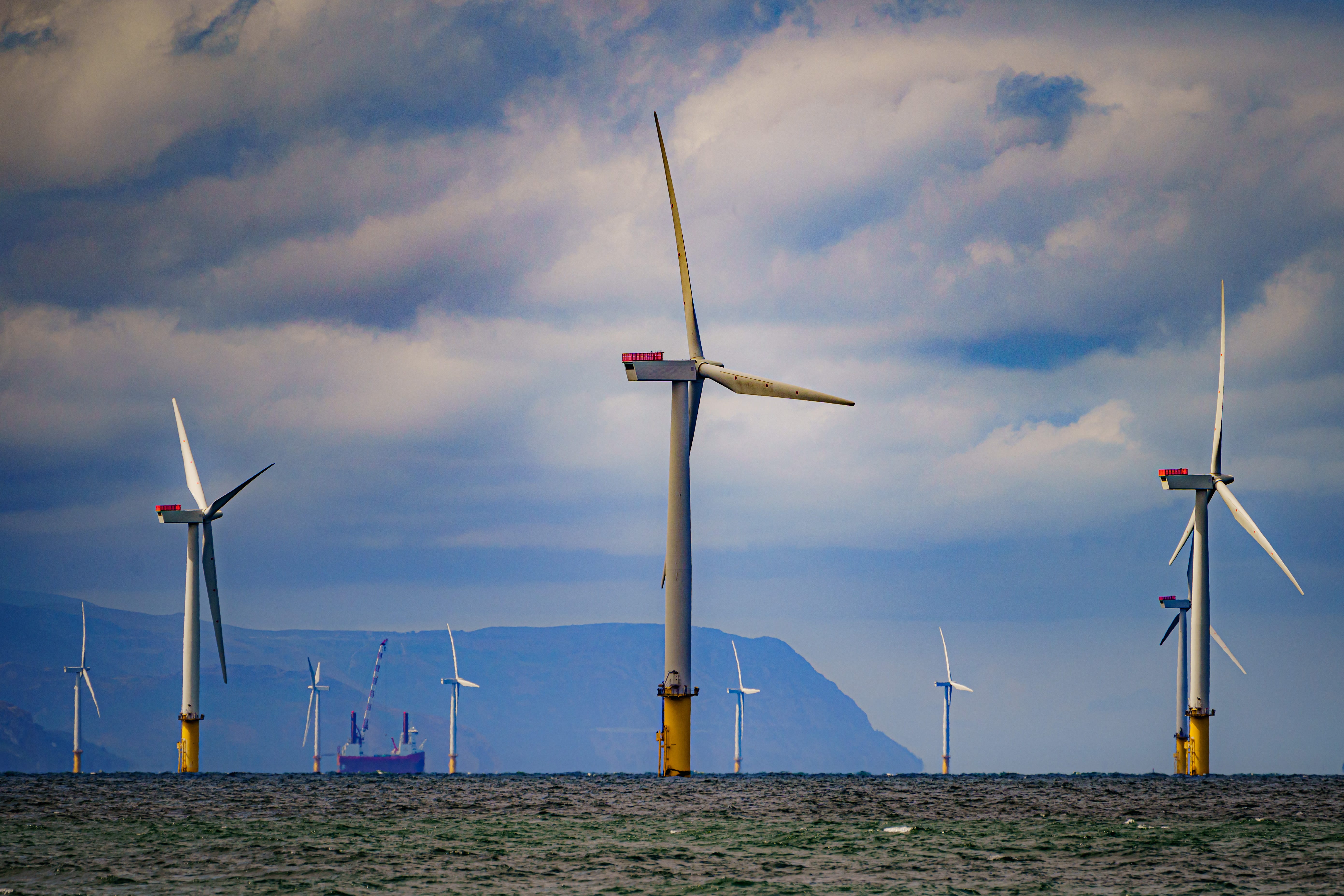‘Clear uptick’ in support for UK’s net-zero target, survey suggests
Nearly three-quarters of people backed the policy of cutting the country’s greenhouse gas emissions to zero by 2050, polling found.

Your support helps us to tell the story
From reproductive rights to climate change to Big Tech, The Independent is on the ground when the story is developing. Whether it's investigating the financials of Elon Musk's pro-Trump PAC or producing our latest documentary, 'The A Word', which shines a light on the American women fighting for reproductive rights, we know how important it is to parse out the facts from the messaging.
At such a critical moment in US history, we need reporters on the ground. Your donation allows us to keep sending journalists to speak to both sides of the story.
The Independent is trusted by Americans across the entire political spectrum. And unlike many other quality news outlets, we choose not to lock Americans out of our reporting and analysis with paywalls. We believe quality journalism should be available to everyone, paid for by those who can afford it.
Your support makes all the difference.Support for UK climate policy has increased since before the General Election, with nearly three-quarters of people backing the shift to net zero, polling suggests.
A poll by YouGov for Climate Barometer, which tracks public opinion on climate change, found that support for net zero had risen from 69% in April to 74% in July after the election.
Climate Barometer said it was the biggest uptick in support for net zero – the legal target to cut the UK’s greenhouse gas emissions to zero by 2050, with any remaining pollution balanced by carbon-reducing measures – over the past two years, when it has been consistently between 69% and 71%.
Our polling shows a clear uptick in support for net zero after two years where previously it had remained at roughly the same level
The polling also suggests that despite the previous government watering down climate measures, such as bringing in electric cars and banning gas boilers, support for net zero also increased among Conservative voters.
Support for net zero was up from 59% of 2019 Tory voters in April to 76% of those who backed the Conservative Party in the July election.
Some of the increase could be down to former Tory voters who oppose net zero switching their vote to Reform UK, which has said it would scrap the targets.
But the July polling, which asked more than 1,100 people about net zero, also shows that support for net zero was up among those who voted Conservative in 2019, from the 59% figure in April to 65% last month.
The data also shows that many Labour voters, and those who left Labour for the Lib Dems or Greens, named climate change in the top five issues affecting their vote
Among Reform UK voters, 44% backed net zero, but Climate Barometer also said its polling showed voters did not shift from the Tories to Reform because of its climate policies.
Labour and Liberal Democrat supporters had high levels of support for net zero, with 85% and 89% backing for the policy respectively.
Dr Susie Wang, co-director at Climate Barometer, said: “Our polling shows a clear uptick in support for net zero after two years where previously it had remained at roughly the same level.
“The data also shows that many Labour voters, and those who left Labour for the Lib Dems or Greens, named climate change in the top five issues affecting their vote.
“But only 5% of voters who switched from the Conservatives to Reform said climate change and the environment played a role in how they voted.”
The polling was part of a climate survey of more than 2,300 people, which also found renewable energy and clean technology were seen as the biggest growth opportunities in the next five years, with 43% naming them when quizzed, above artificial intelligence (32%) and construction (20%).
And the polling, which asked people randomly one of two questions about the target to end the sale of new petrol and diesel cars and vans, found that support was higher when they were reminded that second-hand conventional vehicles would still be available.
The ban was due to come in in 2030 before Rishi Sunak pushed it back to 2035, but Labour have committed to restoring the earlier target date.
Asked whether they supported or opposed the 2030 ban, 34% were in favour and 44% against the plans, but when given the extra context that second-hand petrol and diesel vehicles would still be available to buy, 39% supported the move and 38% were against it.